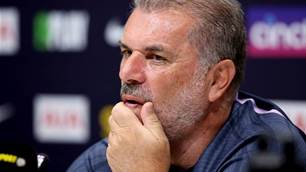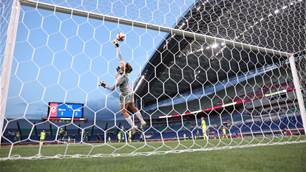IN 2004, Leeds were relegated from the Premier League after borrowing, spending and not performing. Now, Liverpool could face the same fate…
The first accounts published by the club after the takeover that was supposed to propel it back to the big time came in June 2009, showing that Hicks' and Gillett's parent company had borrowed £313m ($523m) from Royal Bank of Scotland and Wachovia, which included the £185m ($309m) they originally took out to buy the club. Despite record turnover of £164.2m ($274.4m) - from Sky TV money, a full Anfield and a more concerted commercial operation - Liverpool lost £40.9m ($68.3m). The club had had to pay interest of £36.5m ($61m) on all that borrowed money, which the banks, with problems of their own, had lent only for a year. KPMG laced Liverpool's accounts with that warning that the club's very existence was threatened. Hicks and Gillett argued this was an accounting technicality, and persuaded the banks to renew the loans, but only for another year, and with significant new money loaned in by the owners.
It had also become clear very quickly that Hicks and Gillett were not dream saviours who would be able or prepared to wave a cheque book to spirit the new Stanley Park stadium into being. They were going to borrow the money for that too, a cost which had spiralled from £100m ($167m) to an estimated £450m ($752m). The only reason the club was for sale in the first place had been to find wealthy backers to fund that new stadium, to lift the club's earning power up where it could compete with United, Chelsea, Arsenal, and now the arrivistes of Manchester City, Spurs and Villa. Yet in August 2008 Hicks and Gillett put out the briefest of statements, containing the not-very-shocking news that the stadium was not going up any time soon.
"The building of the new stadium will be subject to delay," the statement said, blaming "global market conditions".
It was true, of course, that the worldwide banking collapse and recession had made major building projects harder to finance, but nobody had said when the pair took over that they would be borrowing the money to build the stadium. Moores and Parry maintained they needed rich men to stand behind the project, because Anfield, a painfully shattered neighbourhood of boarded up terraced houses around the football ground, is not Highbury in Islington, where Arsenal have made a fortune converting their old stadium into eminently desirable apartments. Hicks and Gillett were the men chosen to facilitate this plan to build Liverpool their new future, but they did not spend their own cash and found they could not borrow the money. So Liverpool have languished at Anfield, with the new stadium no further on than shiny images on the architects' Apple Macs. Under Benitez, the team arguably overperformed to come second in 2009 but last season, shorn of Alonso, few fans protested that seventh was not the team's true level, as Gerrard and Torres creaked and Rafa's tenure reached its unhappy end.
The most recent accounts, for the year to July 31 2009, published in May this year, showed that Liverpool's borrowings had in fact gone down to £250m ($417m). Hicks and Gillett had been forced to lend £144m ($240m) themselves, which they did via their company in the Cayman Islands, to keep spending on players up and bank borrowing tolerable. Yet the banks had extended the loans this time by only weeks, from January 24 2010 to March 3. So KPMG made the same cautionary note, that there was "material uncertainty which may cast significant doubt" on Liverpool's ability "to continue as a going concern", due to the club's reliance on "short-term facility extensions."
Broughton, the chairman of British Airways, was introduced as a business figure of genuine repute to attract a buyer and relieve Liverpool of the aberration in the club's history which the Hicks and Gillett takeover represents, although the pair were insisting on a profit for selling. Hodgson immediately worked the phones to Gerrard, Torres and Mascherano, whose deliberations reinforced the fall in fortunes which Liverpool's status has taken.
Thompson hopes Liverpool can move on, finance the stadium, compete again - and, as importantly, reclaim the pride of the club: "The debt we have been saddled with makes my heart bleed," he says passionately. "We're Liverpool, a special club with worldwide support, but the owners failed to realise the importance of what they had. We're not a brand; the Liverpool supporters still believe in the football club. There is a closeness, a dignity about the fans and the club, which the owners didn't get. Now we have to pull together, support Hodgson and work to get the club to where it should be."
Fans, stung by the debt and decline, and cringing, too, at their own welcome for the initial warm words of Hicks and Gillett, formed their protest groups, most notably Spirit of Shankly, to oppose the owners and emphasise the club's core values.
Taylor, of Share Liverpool, says they won't be stung again: "Hicks and Gillett were welcomed with open arms, but the three years since have been a gradual realisation of how bad a state the club is in. Now, from any new owners, we will need to see action, not words. Liverpool fans, through all this, have lost their virginity."
Still, Liverpool were not Leeds, but only due to the patience of banks. Hicks and Gillett can claim justifiably they funded the club - with loans - to keep trying to compete. But they also loaded Liverpool with the borrowings they made to buy the club in the first place, a piece of financial chicanery which would indeed, surely, have greatly offended the spirit of Shankly.
Related Articles

Postecoglou looking to A-League to 'develop young talent'
.jpeg&h=172&w=306&c=1&s=1)
Big change set to give Socceroos star new lease on life in the EPL












